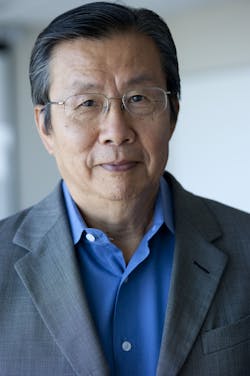Q: Should photonics companies outsource components or finished products? Where is a good place to outsource photonic products? And what are the top dos and don’ts?
A: This topic deserves serious consideration beyond just chasing lower labor costs or getting subsidies. Even more than cost, the quality and consistency of performance between batches is important. Also important are on-time delivery and flexibility to meet fluctuating demands.
All of these issues can be addressed by an overseas contract manufacturer if it is willing to invest time and money to bring them up to speed. The tradeoff is whether a company is better off addressing the cost, quality, and delivery issues by investing in tooling, manufacturing, and inspection equipment to do it right, or whether it should spend the time and effort to train a low-wage work force of a contract manufacturer over which the company has little control. Quality issues invariably arise with precision optics, and you would have to deal with issues at a far away factory over which you have no control. And labor costs will increase over time, given the global economy.
As to your questions: optical components or assemblies both can be manufactured overseas. It is a matter of whether the workforce can maintain quality. The decision should be based on whether it is a stable product the workforce can crank out as routine, or whether production undergoes frequent changes that require retraining or retooling.
Optics are outsourced to China, Taiwan, Singapore, Korea, India, and Mexico. And now there is mention of Vietnam and Thailand. In choosing the location, also consider proximity to supplier and customers, political stability, and infrastructure costs such as energy.
Three important considerations: customers, customers, and customers. Consider outsourcing to economically depressed regions of the U.S. Labor costs can be quite low, and you may just find a stable workforce and fewer distance-related issues to contend with.
Q: What is a fair compensation for directors of a start-up company?
A: I can only give you a rough idea because private companies rarely publicize this data, and the compensation varies significantly. Most start-up companies grant stock options in lieu of cash compensation to preserve cash. The range is usually 0.5% to 1% of the outstanding shares. Generally, cash or cash equivalent is about $25,000 to $50,000 per year depending on the amount of time and responsibility. An executive chairman or directors serving on a compensation and audit committee would get more, and directors who take on specific assignments as consultants would get paid at the going rate with a portion in stock options. Venture capitalists (VCs) who represent their venture funds generally do not get compensated.
Q: How do I start a company to develop an optical instrument using an entangled-photon source for a defense application? Are there VCs in my area you can introduce me to?
A: That depends on whether the technology is ready for “commercialization.” I can introduce you to VCs in your area if technological uncertainties have been resolved. The point is VCs do not usually fund research projects; they invest in startups that can generate revenue in a reasonable timeframe.
Fundamentally there is a clash of values between financial and technical communities. Business tends to be here and now—investors want to know specifically how soon the products can be ready, whether the product is useful, how big the market could be, and how much investment is required to get to cash breakeven. On the other hand, we in the technical community take pride in being visionaries, and like to take on technologies that are challenging and have many potential applications. If the technology is still in the developmental stage, then it is more appropriate to start an R&D company before getting VCs involved.

